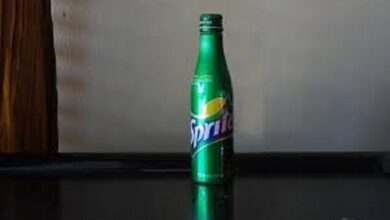Skin Lightening Creams: Demystifying the Hype and Exploring Alternatives

The quest for a clear, even-toned complexion has captivated humans for centuries. Skin lighteners, particularly creams, have become a ubiquitous tool in this pursuit. But in the face of conflicting information, safety concerns, and the rise of natural alternatives, navigating the world of “skin light creams” can be confusing. This comprehensive guide delves deep into the topic, examining the science behind these products, exploring their potential benefits and risks, and offering safer, more sustainable alternatives.
Understanding Skin Tone:
Melanin, a pigment produced by specialized cells called melanocytes, determines our skin tone. Variations in melanin production, influenced by genetics, sun exposure, and hormonal changes, lead to diverse shades and complexions. While darker skin tones offer natural sun protection, societal biases and unrealistic beauty standards have fueled a desire for lighter skin in many cultures.
Demystifying Skin Lightening Creams:
Skin lightening creams contain ingredients that target melanin production in different ways. Some common mechanisms include:
- Tyrosinase inhibitors: These block the enzyme tyrosinase, a key player in melanin production. The most common tyrosinase inhibitor is hydroquinone, but its use has been restricted due to safety concerns.
- Kojic acid: Derived from fungi, it inhibits melanin production and has antioxidant properties.
- Alpha-arbutin: A natural derivative of hydroquinone, it is considered a gentler alternative but less effective.
- Vitamin C: A potent antioxidant, it may indirectly influence melanin production and brighten the skin.
The Efficacy and Risks of Skin Lightening Creams:
The effectiveness of skin lightening creams varies. While some may fade hyperpigmentation or dark spots, achieving a dramatic lightening of overall skin tone is often unrealistic and unsustainable. Additionally, potential risks associated with these creams include:
- Skin irritation and sensitization: Ingredients like hydroquinone can cause redness, burning, and dryness.
- Uneven skin tone: Patchy lightening can occur, especially with inconsistent application.
- Hyperpigmentation rebound: Stopping the cream can lead to a re-darkening of the treated area.
- Mercury poisoning: Some illegal creams contain mercury, a dangerous toxin causing serious health problems.
Beyond the Cream: Natural Alternatives for a Radiant Glow:
While skin lightening creams offer a quick fix, a holistic approach to achieving healthy, radiant skin often yields better long-term results. Here are some safer, natural alternatives:
- Sun protection: Consistent sunscreen use is vital for preventing sun damage and hyperpigmentation.
- Gentle exfoliation: Regular removal of dead skin cells can promote brighter, more even skin tone.
- Skin-brightening ingredients: Look for natural ingredients like niacinamide, vitamin C, and licorice root extract with documented skin-brightening properties.
- Lifestyle choices: A healthy diet, adequate sleep, and stress management contribute to overall skin health and radiance.
Conclusion:
The pursuit of lighter skin is complex, rooted in societal pressures and unrealistic beauty standards. While skin lightening creams may offer some benefits, their efficacy is limited, and potential risks raise concerns. Embracing your natural skin tone and focusing on holistic skincare practices that promote overall health and radiance are more sustainable and empowering approaches to achieving a beautiful complexion.
FAQ:
-
Q: Are skin lightening creams safe? A: The safety of skin lightening creams depends on the ingredients and individual factors. Some ingredients, like hydroquinone, are associated with risks and have restrictions. Consult a dermatologist for personalized advice.
-
Q: Do skin lightening creams work permanently? A: The effects of skin lightening creams are often temporary and require consistent use to maintain. Stopping the cream can lead to a re-darkening of the treated area.
-
Q: Are there natural alternatives to skin lightening creams? A: Yes! Sun protection, gentle exfoliation, skin-brightening ingredients like niacinamide and vitamin C, and a healthy lifestyle can all contribute to a brighter, more even complexion.
-
Q: How can I embrace my natural skin tone? A: Celebrate your unique beauty! Focus on self-care practices that promote overall health and well-being. Remember, beauty comes in all colors and shades.




